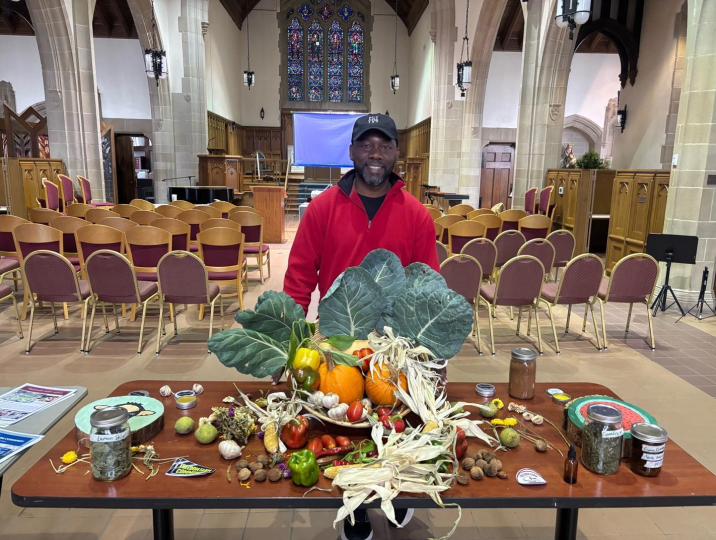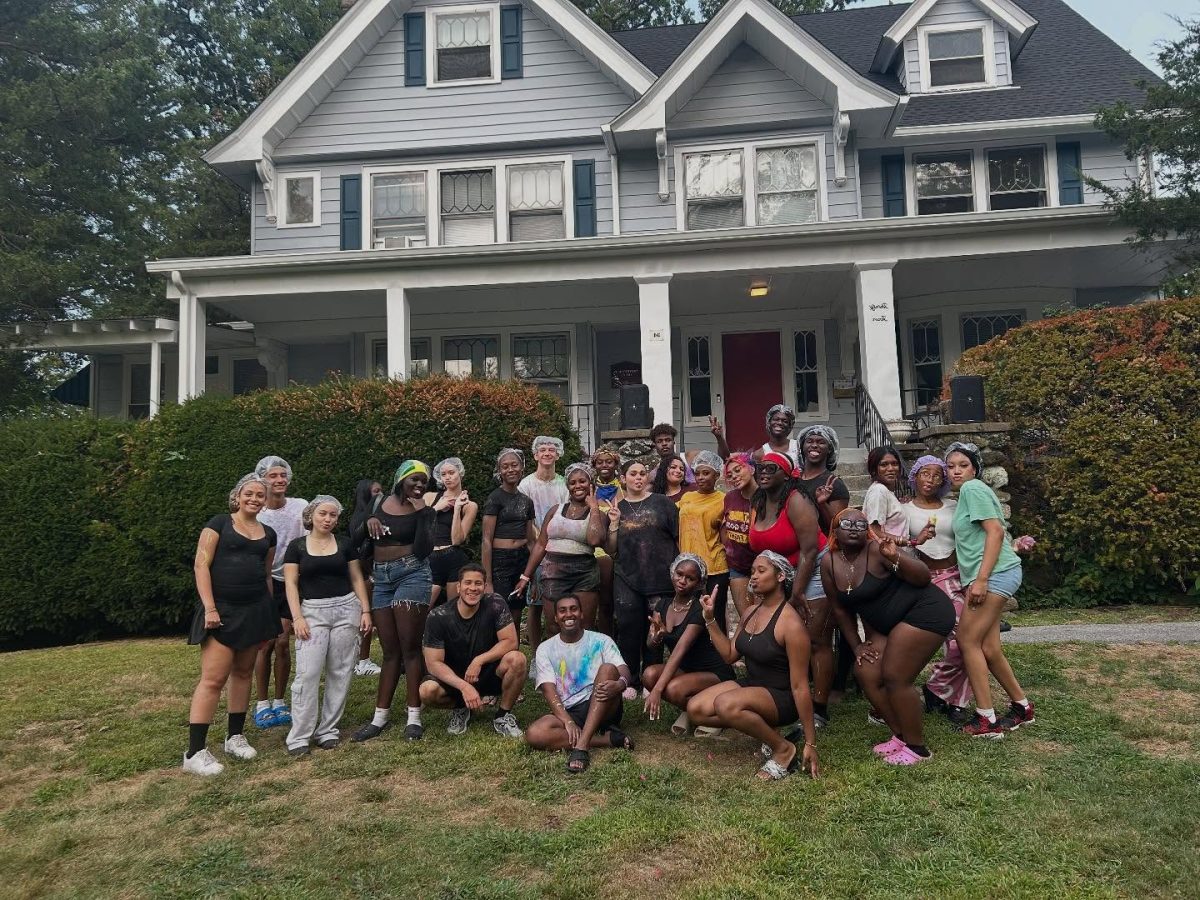On Tuesday, October 14th, the Deignan Institute hosted guest speaker Edgar Hayes in the Arrigoni Center. Hayes, executive director of Freedom Farm Community (FFC), delivered a presentation featuring discussions of racial injustice and botanical healing, as well as commentary on how these are intertwined.
Hayes began his presentation by introducing a phenomenon known as “malaise”. Malaise refers to society’s unwillingness to move toward social change, or its sluggishness in doing so. According to Hayes, the solution is recognizing that everyone is tied into a web of mutuality, no individual can truly succeed without the success of others. Hayes invokes the words of Dr. Martin Luther King: “Whatever affects one directly, affects all indirectly. I can never be what I ought to be until you are what you ought to be, and you can never be what you ought to be until I am what I ought to be” (Letter from Birmingham Jail). Hayes compares this to a critical relationship in nature, that of the tree and fungi surrounding it. The tree grows tall and spreads its roots around its base. Sooner than later, fungi appear around the tree and feed on it from its roots. In exchange, the fungi provide the tree with an abundance of nutrients that it is otherwise unable to reach. Although the fungi and the tree can survive alone, one does not flourish and reach their potential without the other. Hayes draws a direct comparison between this symbiosis and human society. He wants students to see that “The one who has so much should share with the ones who don’t. We can change the mentality of our culture from the bootstraps mentality to the community mentality”.
When asked about his experience, student-athlete Jack Granberg said, “I wasn’t sure about coming here, but [Hayes] had a pretty good presentation. It opened my eyes to how our ancestors knew all these things before us”. Hayes taught students about the wisdom of generations past, wisdom that guides Freedom Farm Community in their quest to heal with nature’s gifts. Goldenrod flowers, for instance, can be used to produce tinctures, a substance that is administered sublingually to treat a variety of ailments. If prepared in the right way, the hull (outer covering) of the black walnut can be used to treat fungal infections. Hayes encourages his audience to seek out herbal treatments in a world dominated by pharmaceutical means, to “grow things and to move away from corporations, put people in front of profits”.
Hayes will continue to serve those in need by donating his harvest and educating the Iona student community.




